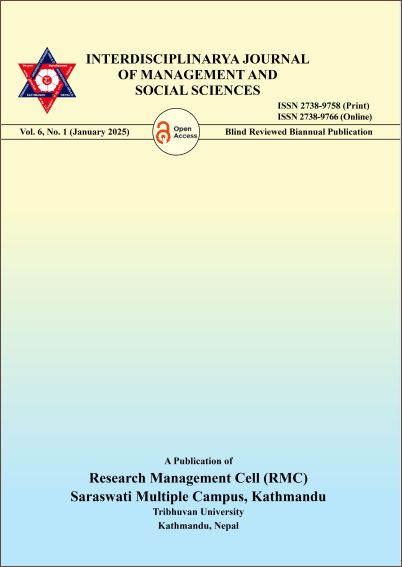A Comparative Study of Traditional and Postmodern Perspectives on the Yashodhara Drama
DOI:
https://doi.org/10.3126/ijmss.v6i1.75412Keywords:
Surrender, Postmodern Perspective, Reciprocity, Comparative Study, Traditional PerspectiveAbstract
In most of the mythological and medieval texts, the author has given prominence to the courageous male protagonist instead of the female character. Be it Hindu or Buddhist texts, female characters have been overlooked or ignored, but in Nepali literature, over the past fifty years, heroine-dominated dramas have been written, giving a central place to the entire being of female characters. In the present study, playwright Kali Prasad Rijal's Yashodhara (2059) Geetha Natak and Sharada Subba's Yashodhara (2065) drama have been taken as evidence material to conduct a comparative character study of the traditional and postmodern perspectives of Yashodhara drama. The concept of comparative criticism has been used as the basis for analyzing the evidence material. Comparative research method has been used in this. The style of presenting the same fact and character varies from author to author. The same object can be presented with the same or different perspectives. In this study, the Yashodhara drama has been studied and the character of Yashodhara has been studied comparatively. Kali Prasad Rijal has portrayed Yashodhara's character according to the traditional idealistic system, while Sharada Subba has portrayed Yashodhara's constructed character under postmodern consciousness. Portraying Yashodhara's character according to the idealistic system and portraying Yashodhara's constructed character under postmodern consciousness are completely different things. This is the main conclusion of this article.
Downloads
Downloads
Published
How to Cite
Issue
Section
License

This work is licensed under a Creative Commons Attribution-NonCommercial 4.0 International License.

